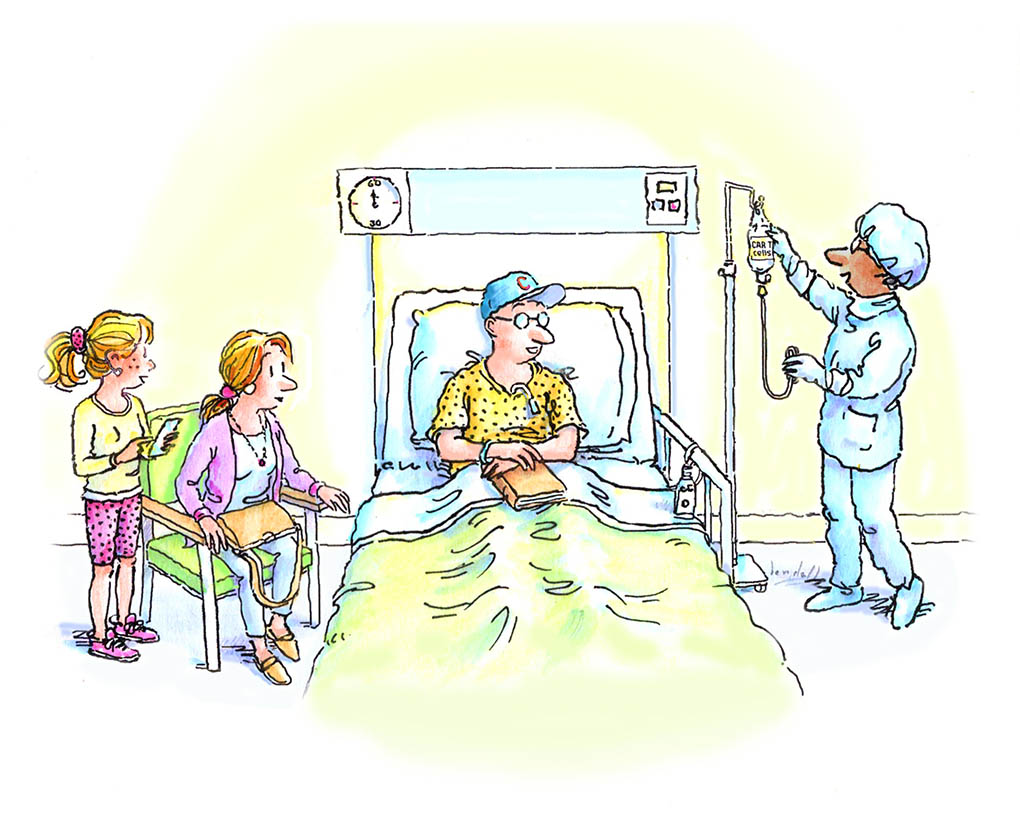Many transplant recipients call their day of transplant their "rebirthday" and celebrate the day each year after transplant.
 One to three days after the conditioning regimen, the transplant will occur. The transplant is not a surgical procedure. It takes place in your hospital room or outpatient clinic, not an operating room.
One to three days after the conditioning regimen, the transplant will occur. The transplant is not a surgical procedure. It takes place in your hospital room or outpatient clinic, not an operating room.
On the day of your transplant, the healthy blood stem cells will be infused into you through your central venous catheter, much like a blood transfusion. The infusion is painless and can take 30 minutes to two hours to complete. You will be awake and may be lightly sedated during the transplant.
Engraftment
The two-to-three-week period after the transplant is a critical time. The conditioning regimen will have temporarily crippled your immune system. Until the transplanted stem cells begin producing normal blood cells, you will be very susceptible to infection and excessive bleeding.
- You may receive drugs called growth factors to speed the recovery of your blood counts.
- You will be closely monitored for signs of infection
- You will be given antibiotics, as needed, to prevent and fight infection.
- Platelet transfusions will help prevent bleeding.
- Red blood cell transfusions may be necessary to treat anemia.
If you were transplanted with donor cells, you will likely receive medications to reduce the risk of developing graft-versus-host disease (GVHD).
Daily blood samples will be drawn to determine when your healthy stem cells have engrafted and your blood counts have returned to a safe level.


